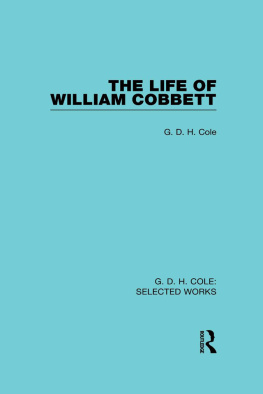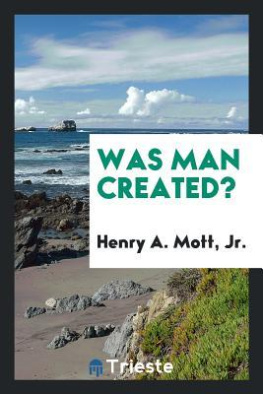FOREWORD
BY
The Right Honourable Viscount Bryce
late British Ambassador to America
There has been no more striking example in our time of how self-reliance and strength of purpose can triumph over adverse fortune than that presented by the career of Henry Fawcett. The story of his life as it is to be told in this book will give ample illustrations of his fortitude and his perseverance. All that I, an old friend of his, need speak of is a quality hardly less remarkable than was his energy. I mean his cheerfulness. It was specially wonderful and admirable in one afflicted as he was. Nothing would seem so to cut a man off from his fellows as the loss of sight, nor would it appear possible to enjoy the charms of external nature without seeing them. Fawcett, however, delighted in society. He never moped. He loved to be among his friends, and found an inexhaustible pleasure in talk wherever he was, in his College (Trinity Hall, Cambridge), at London dinner-parties, in the lobbies or smoking-room of the House of Commons. If he had moments of sadness in solitude we knew nothing of them, for in company he was always bright. His greetings were joyous; his good spirits proverbial at Cambridge, and indeed in all the circles that knew him, making his friends feel, in any moments of depression that might come upon them, half ashamed to be less cheery than one with whom fate had dealt so hardly. Without this natural buoyancy of temper, even such a resolute will as his might have failed to achieve so much as he achieved. He seemed determined to hold on to every possible source of enjoyment he had ever known before sight was lost. That determination used to strike me most in his fondness for open-air nature and physical exercise. He loved not only walking but riding. I remember how once when I was staying with him in the same country house in Surrey, our host arranged a long excursion on horseback through the lanes and woods of the pretty country that lies on both sides of the North Downs, to the south-west of London. Fawcett insisted on being one of the party, and when he approached a place where the bridle-path ran through a wood of beeches, whose spreading boughs came down almost to the height of the horses heads, he said to me, Tell me to duck my head whenever we come to a spot where the branches are low. I felt uneasy, for if he had struck against one of the thick boughs, he might have been unhorsed and would certainly have been hurt. However, I went in front and warned him as he had desired. He rode on fearlessly, stooping low over the horses neck whenever I called out to him to do so, and he evidently enjoyed the fresh scent of the woods and the rustling of the leaves just as much as did all the rest of us.
His love of nature, joined to his sympathy with the masses of the people, made him eager to secure the preservation of public rights in commons and village greens and footpaths. He was one of the founders of that Commons Preservation Society which has done so much to save open spaces in England from the grasp of the spoiler; frequently attended its meetings, and was always ready to vote and speak in the House of Commons when any question involving popular rights in the land arose there.
At a time when extremely few non-official persons in Parliament interested themselves in the government and administration of India, Fawcett, though he had never visited the East, and had no family connection with it, felt, and set himself to impress upon others, the grave responsibility of Britain for the welfare of the peoples of India. He studied with characteristic thoroughness and assiduity the facts and conditions of Indian life, the financial problems those conditions involve, the needs and feelings of the subject population. His speeches were of the greatest value in calling public attention to these subjects, and his name is gratefully remembered in India.
His mental powers were remarkable rather for strength than for subtlety. It was an eminently English intellect, forcible in its broad commonsense way of looking at things, and in its disposition to pass by side issues and refinements in order to go straight to the main conclusions he desired to enforce. This was what chiefly gave weight to his speeches in Parliament and on the platform. Debarred as he was from the use of writing, he formed the habit of thinking out fully beforehand both what he meant to say and the words in which he meant to say it, and thus he became a master of lucid statement and cogent argument, making each of his points sharp and clear, and driving them home in a way which every listener could comprehend. The same merits of directness and coherency are conspicuous in his writings on political economy, his favourite study. There were no dark corners in his mind any more than in his political creed, or indeed in his course of action as a statesman. In practical politics, it was said of him, to use a familiar phrase, that you always knew where to find him. That was one of the qualities which secured for him not only the confidence of his political friends but the respect of his political opponents. When he died prematurely he had reached a position in the House of Commons which would have secured his early admission to the Cabinet, and the only doubt I ever heard raised was whether his blindness, which would have made it necessary that documents, however confidential, should be read aloud to him, would have constituted a fatal obstacle.
The force of his character and the vigour of his intellect must have ensured him a distinguished career even had he been stricken by no calamity. That he should have been stricken by one which would have overwhelmed almost any other man, and should have triumphed over it by his cheerful and persistent courage, marks him out as an extraordinary man, worthy to be long remembered.
BRYCE.
INTRODUCTION
I wish we had Fawcett here to-day. At this crisis England needs him sorely. These words, said with much feeling by the late Lord Avebury, were spoken to the writer of this book only two years ago.
Fawcett is not needed only in England. His is the type of man needed sorely to-day and every day in every empire and democracy under the sun. His example of valour against odds is just as necessary for America as for the Mother Country, for the men who are now doing the worlds work as for the lads who will be at work to-morrow.
Sir Leslie Stephen said that while writing the biography of Fawcett, there was not a single fact which he had to conceal, nothing to explain away, nothing to apologise for, and he judged the best way to do his subject honour was to tell the plain story as fully and as frankly as he could.





